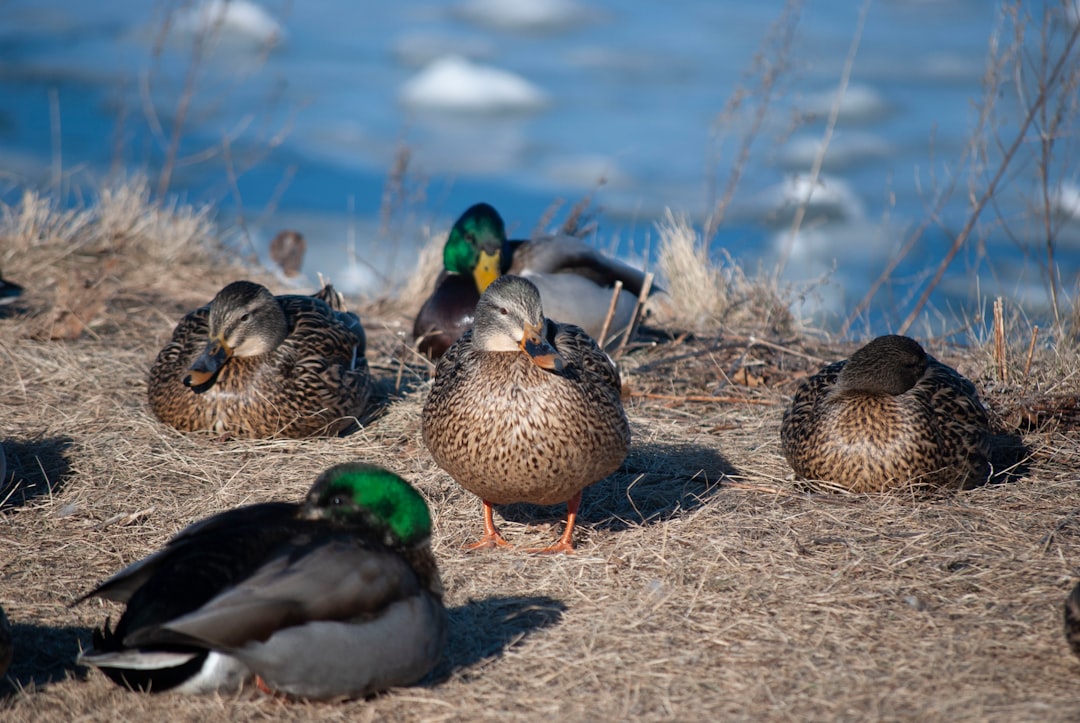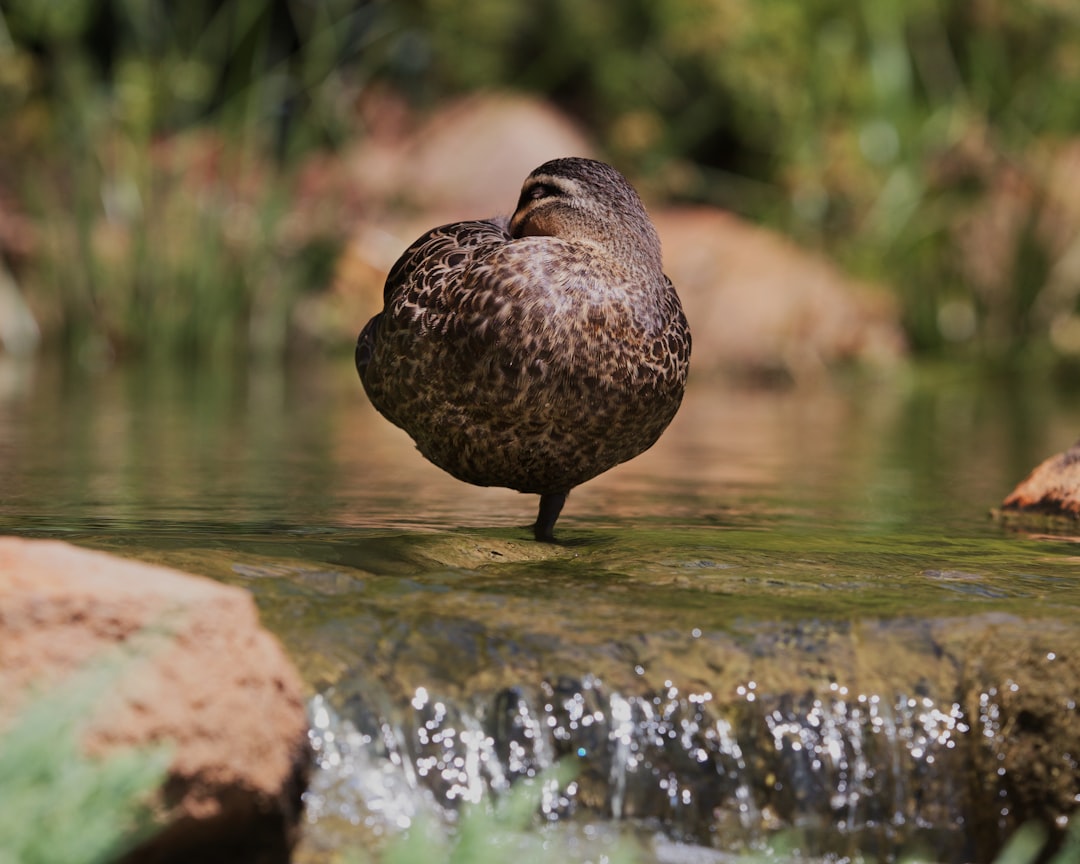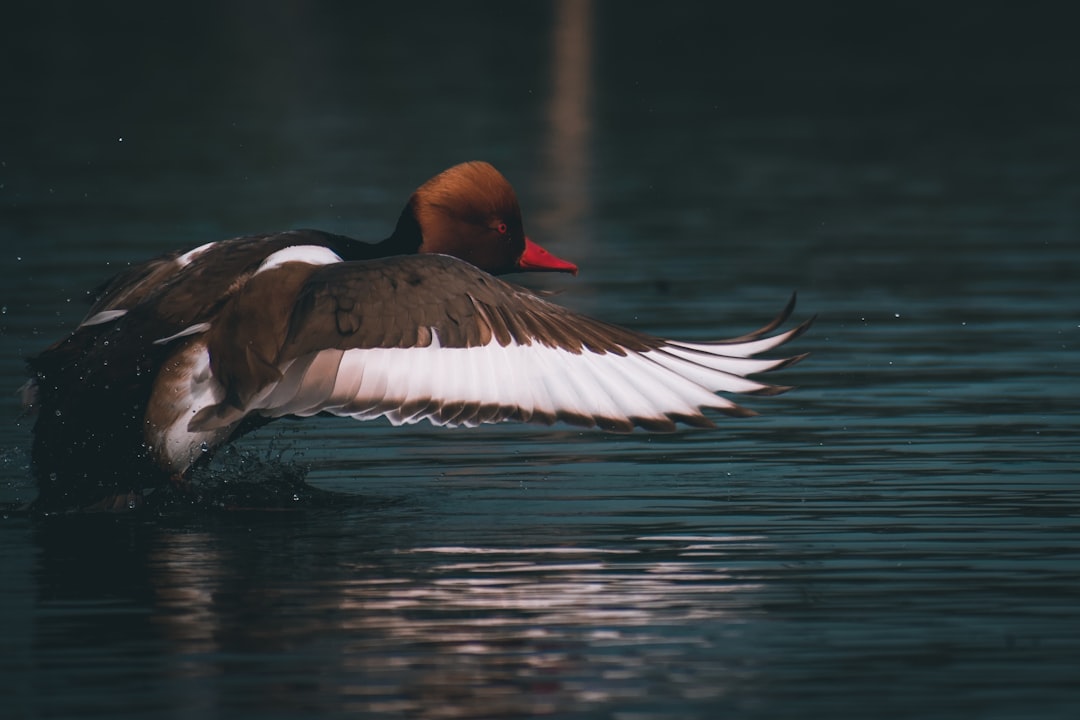Ducks are fascinating creatures that are widely known for their adorable quacks and waddling walks.
How Long Do Ducks Sleep? Ducks typically sleep for 10.8 h with one eye open and half of their brain alert, which allows them to stay vigilant against predators while still getting some rest.
They tend to sleep more during the night and less during the day, but their exact sleeping patterns can vary depending on the species and their environment.
In this article, we will explore the sleeping habits of ducks and provide some interesting insights into their sleeping patterns.
Generally, ducks will sleep for several hours a day, with some species sleeping up to 16 hours a day during the winter when food is scarce.
How Long Do Ducks Sleep?
Ducks sleep for about 10.8 hours a day, which is more than most other birds. They typically sleep in short bursts, lasting for about 10-15 minutes at a time. Ducks may also sleep while floating on water, or while standing on one leg.
Ducks have a unique way of sleeping called unihemispheric sleep. This means that they can sleep with only half of their brain at a time, while the other half remains awake.
This allows them to stay alert for predators while still getting some rest.
Ducks typically sleep at night, but they may also sleep during the day, especially if it is hot or they are feeling tired. They will often sleep in groups, which helps them to stay warm and safe.
Here are some interesting facts about how ducks sleep:
- Ducks can sleep while floating on water. They do this by tucking their heads under their wings and closing their eyes.
- Ducks can sleep while standing on one leg. This is because they have a special tendon that allows them to lock their leg in place.
- Ducks can sleep with one eye open. This allows them to stay alert for predators while still getting some rest.
- Ducks typically sleep in groups. This helps them to stay warm and safe.
The Sleeping Habits Of Duck
Ducks sleep for around 10.8 hours a day with one eye open and half of their brain alert. They sleep more during the night and less during the day, but this can vary depending on the species and environment.
Ducks sleep for several hours a day, with some species sleeping up to 16 hours a day during winter when food is scarce. Their sleeping patterns can be disrupted by disturbances such as human activity or loud noises.
1. Ducks Are Diurnal Animal
Although ducks are known to sleep more during the night, they are actually diurnal animals, meaning they are active during both day and night.
This is because their feeding habits require them to be awake and alert during the day to forage for food in water or on land.
As social creatures, ducks also tend to rest in groups, with some species even forming a circular formation called a “roosting wheel” while sleeping on water.
2. Ducks Like To Sleep In Groups
Ducks are social animals and they prefer to sleep in groups. This provides them with a sense of security as they can watch out for each other while resting.
Sleeping in groups helps ducks conserve body heat, especially during colder months. It’s not uncommon to see large groups of ducks sleeping together in the same area.
3. Ducks mostly sleep floating on water
Interestingly, ducks usually sleep floating on water. This is because it allows them to easily escape from potential predators, as they can quickly awaken and fly away if necessary.
Sleeping on water also helps keep their feathers in good condition and prevents them from becoming matted or damaged while sleeping on hard surfaces
4. Ducks can sleep unihemispherically
Another interesting fact about ducks’ sleeping habits is that they can sleep unihemispherically. This means that only one hemisphere of their brain sleeps at a time, allowing them to remain partially alert while still getting some rest.
5. Various Sleeping Postures
Ducks exhibit different sleeping postures depending on their environment and the level of security they feel. For instance, ducks that sleep on land may tuck their bill under their wing and stand on one leg to conserve heat.
Ducks that sleep floating on water, however, tend to rest their head on their back while keeping one eye open and half of their brain alert.
6. Semi-Nocturnal In Nature
While ducks are considered diurnal animals, some species also exhibit semi-nocturnal behavior.
This means they are more active during the early morning and late afternoon hours when there is less human activity and fewer potential predators around.
During these times, you may notice ducks flying in and out of their roosting areas or resting on the water’s surface.
7. Ducks Are Able To Sleep With One Eye Open
As mentioned earlier, ducks sleep with one eye open and half of their brain alert. This unique ability allows them to detect any potential threats while still getting some rest.
It’s important to note that this sleeping pattern is not exclusive to ducks, as other birds like chickens and pigeons also exhibit this behavior.
Factors That Affect Duck Sleep

Several factors can affect a duck’s sleep, including their age, health, and environmental conditions.
For instance, young ducks may need more sleep than adults, while sick or injured ducks may have trouble sleeping due to discomfort.
Environmental factors like temperature, noise levels, and lighting can also impact a duck’s ability to get restful sleep.
1. Season
Seasonal changes can also affect a duck’s sleeping patterns. During the breeding season, male ducks may sleep less as they devote more time to courtship and territorial defense.
On the other hand, female ducks may sleep more during the incubation period as they need to conserve energy for laying and caring for their eggs.
During migration, ducks may also alter their sleeping habits to accommodate long flights and unpredictable weather conditions.
2. Weather
Weather can also impact a duck’s sleep. During heavy rain or snow, ducks may seek shelter and sleep more than usual to conserve energy.
On the other hand, during hot and dry weather, ducks may become more active at night when temperatures are cooler.
3. Temperature
Environmental factors like temperature can also impact a duck’s sleep. Ducks are well adapted to cold weather, but extreme temperatures can still affect their ability to rest comfortably.
During very cold weather, ducks may huddle together to conserve body heat and maintain warmth.
In contrast, during hot weather, they may spend more time in the water or seek shade during the day and become more active at night when it is cooler.
4. The Availability Of Food
The availability of food can also affect a duck’s sleep. If they are hungry, ducks may spend more time searching for food and less time sleeping.
In contrast, if food is plentiful, ducks may sleep more to conserve energy.
It is important to provide ducks with a balanced and nutritious diet to ensure they have enough energy to carry out their daily activities and get the restful sleep they need.
How Much Sleep Do Ducks Need?
The amount of sleep that ducks need varies depending on several factors, but generally, they require between 8-10 hours of sleep per day.
However, this sleep is usually divided into several naps throughout the day and night, rather than one long stretch of sleep.
Do Ducks Sleep Standing Up?

Yes, ducks can sleep standing up. As mentioned earlier, ducks that sleep on land may tuck their bill under their wing and stand on one leg to conserve heat.
This sleeping position also allows them to quickly escape any potential predators.
How long Do Baby Ducks Sleep?
Baby ducks, or ducklings, require more sleep than adult ducks. This is because they are growing rapidly and need more rest to support their development.
Ducklings may sleep for up to 20 hours per day, with short periods of activity in between naps. As they grow older and become more active, they will gradually require less sleep.
It’s important to provide ducklings with a warm and comfortable sleeping area that is safe from predators and other potential hazards.
Why Do Ducks Sleep With Their Heads Backward?
It is common for ducks to sleep with their heads tucked under their wings. This position not only conserves heat but also protects their eyes and beaks from the elements.
There is no definitive answer as to why ducks do this, it is believed that they may be trying to keep a watchful eye on potential predators while still getting some rest.
Do Ducks Sleep While Flying?
No, ducks do not sleep while flying. In fact, they need to be fully alert during flight to avoid obstacles and navigate their surroundings.
Ducks are known to rest while floating on water, often with one eye open to keep a lookout for predators or other potential threats.
This resting state is called “alert rest” and allows ducks to conserve energy while staying aware of their environment.
What Time Of Day Do Ducks Go To Sleep?
Ducks do not have a set time for sleeping. They can sleep at any time of the day or night, and their sleeping patterns can vary depending on environmental factors such as weather, temperature, and food availability.
What Time Of Night Do Ducks Go To Sleep?

Ducks do not have a specific time of night when they go to sleep. Their sleeping patterns are influenced by various factors, including temperature, food availability, and safety.
Ducks are more active during the day and sleep more at night. They may also take short naps throughout the day to rest and conserve energy.
Why Do Ducks Sleep At Night?
Ducks sleep at night for the same reason that most animals do for rest and recharge their bodies. During the day, ducks are active, searching for food and socializing with other ducks.
At night, they can take a break from these activities and get the rest they need to maintain their health and well-being.
It’s also worth noting that sleeping at night provides ducks with a certain level of safety. Many predators are nocturnal and more active at night, so by sleeping during this time, ducks can minimize their risk of being attacked or eaten.
Do Ducks Need Bed To Sleep ?
Ducks do not necessarily need a bed to sleep, but it is important to provide them with a safe and comfortable sleeping environment. In the wild, ducks may sleep on land or water, depending on their species and habitat.
Domesticated ducks can also sleep in various areas such as nesting boxes or shelters.
Do Ducks Sleep With Eyes Open?
No, ducks do not usually sleep with their eyes open. They are capable of keeping one eye open while sleeping to remain alert for potential predators or threats.
It’s important to provide ducks with a safe and quiet sleeping environment to promote restful sleep and maintain their overall health and well-being.
Where Should Ducks Sleep At Night?
In the wild, ducks typically look for a safe and sheltered place to sleep at night. They may choose to sleep on the water or on land, depending on their species and habitat.
If you have domesticated ducks, it’s important to provide them with a secure sleeping area that is protected from predators and other hazards.
This can be in the form of a coop or shelter, with clean bedding to keep them warm and comfortable.
It’s also important to make sure that the sleeping area is well-ventilated to prevent moisture buildup and maintain good air quality.
Conclusion: How Long Do Ducks Sleep?
Ducks do not have a set time for sleeping and their sleeping patterns can vary depending on environmental factors. They sleep at night to rest and recharge their bodies, while also minimizing the risk of being attacked by predators.
Providing ducks with a safe and comfortable sleeping environment is crucial to their overall health and well-being.
While they may not necessarily need a bed to sleep, it’s important to provide them with a secure sleeping area that is protected from potential hazards.
By taking these measures, you can help your feathered friends get the restful sleep they need to thrive.
FAQs
How Long Do Ducks Sleep in A Day?
Ducks can sleep up to 12 hours a day.
Do Ducks Sleep More During the Day or Night?
Ducks tend to sleep more during the night than during the day.
How Long Do Ducks Sleep at Night?
Ducks can sleep for several hours at night, but may also take short naps throughout the day.
Can Ducks Sleep While Swimming?
Yes, ducks can rest and sleep while floating on water.
Do Baby Ducks Sleep More than Adult Ducks?
Yes, baby ducks need more sleep than adult ducks and may sleep for up to 16 hours a day.




